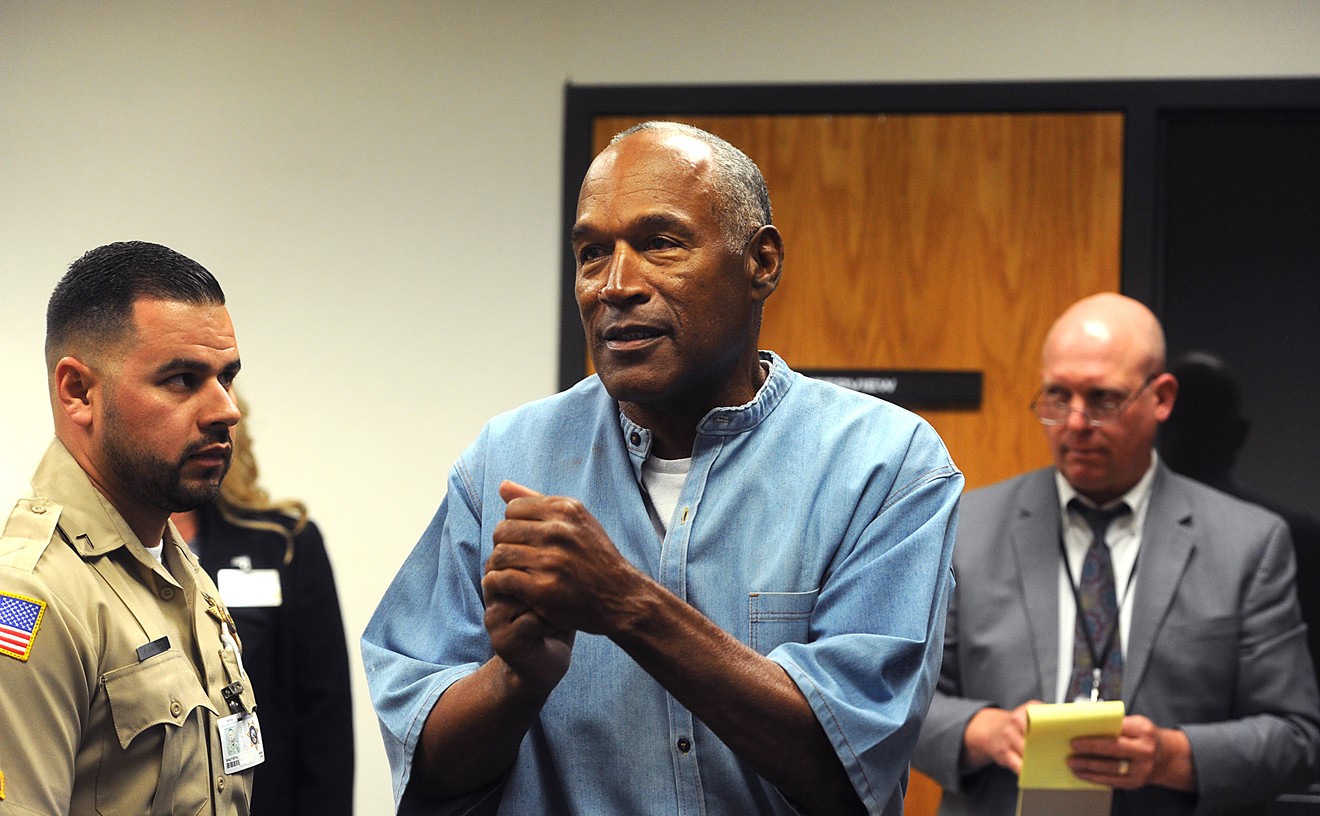On November 2, 2016, the Professional Law Enforcement Association, a police union, requested Miami-Dade County Police airport cop Mark Allen's body-camera footage from the week of September 7 that year. According to MDPD bylaws, the department must preserve nonevidentiary footage for a minimum of 90 days — the union requested copies of Allen's footage in less than 60.
On December 9, the department confirmed it had the footage and then sent the union a bill for $14.50 to cover the cost of the request. On December 28, the association paid the fee.
Then, January 20, a police lieutenant reported the department had deleted the footage. So the union is now suing to either force MDPD to find a way to retrieve the records or compensate it in some way. The case has broad implications for the ways in which citizens can access taxpayer-funded body-camera footage. The suit also raises questions about whether the county's largest department can handle the immense data-storage responsibilities of a body-cam system.
"There was so much planning and anticipation before implementing body cameras, then there was a timely request, then the acknowledgment of request, then there was an invoice, the client sends back a check, and now it’s gone?" Terri Guttman Valdes, a lawyer for the association, asks incredulously.
Valdes declined to speculate about whether the department was hiding something. The union hasn't even told her why it requested footage of Allen, an officer it represents. But, she says, the union assumes police have the the footage but have refused to retrieve it.
"This is a department that investigates cybercrime," Valdes says. "They know how to retrieve things that have been deleted from devices."
Spokespeople for MDPD did not immediately respond to New Times' request for comment. As a rule, the department does not comment on active litigation. MDPD isn't the only South Florida police agency mired in a body-camera scandal: For months, City of Miami cops haven't even been using their body cams despite the hefty price taxpayers shelled out for them and the fact their usage is mandatory.
But according to documents attached to the MDPD lawsuit, which was filed in county court March 16, a lieutenant working in "digital services" at MDPD, Luis Almaguer, said the department deleted the footage according to its 90-day "retention schedule" and isn't able to recover it.
"As per our phone conversation, unfortunately, the videos you requested have been purged from the system as per our retention schedule," Almaguer wrote. "Routine calls for service are deleted from the system at 90 days. We've asked the BWC [body-worn camera] company (VieVu) for assistance in retrieving deleted videos, and they were not able to retrieve the footage you requested."
But, Almaguer added, the department is now increasing the length of time it saves footage in order to prevent accidental deletions from happening again.
"Effective immediately, the Body-Worn Camera Unit will extend the deletion date for all future public records request[s] to avoid these issues," he wrote.
But Valdes says the union isn't convinced the footage is lost forever, given the department's ability to otherwise retrieve deleted items from suspects' computers.
"We're treating this as if the information can still be recovered," she says.
Plus, according to the text of the lawsuit, the union says extending the "deletion date" for requests doesn't solve the problem that this footage was deleted months after a request was filed to view it. Once someone requests footage, those files should be preserved.
"If in fact the documents were 'purged' and are no longer available in any way, shape, or form, it is Plaintiff's position that the Defendant has violated the Public Records Act and should be sanctioned accordingly, as well as being required to pay attorney's fees and costs," the suit says.
[
{
"name": "Air - MediumRectangle - Inline Content - Mobile Display Size",
"component": "19274298",
"insertPoint": "2",
"requiredCountToDisplay": "2"
},{
"name": "Editor Picks",
"component": "17482312",
"insertPoint": "4",
"requiredCountToDisplay": "1"
},{
"name": "Inline Links",
"component": "18711090",
"insertPoint": "8th",
"startingPoint": 8,
"requiredCountToDisplay": "7",
"maxInsertions": 25
},{
"name": "Air - MediumRectangle - Combo - Inline Content",
"component": "17482310",
"insertPoint": "8th",
"startingPoint": 8,
"requiredCountToDisplay": "7",
"maxInsertions": 25
},{
"name": "Inline Links",
"component": "18711090",
"insertPoint": "8th",
"startingPoint": 12,
"requiredCountToDisplay": "11",
"maxInsertions": 25
},{
"name": "Air - Leaderboard Tower - Combo - Inline Content",
"component": "17482313",
"insertPoint": "8th",
"startingPoint": 12,
"requiredCountToDisplay": "11",
"maxInsertions": 25
}
]












